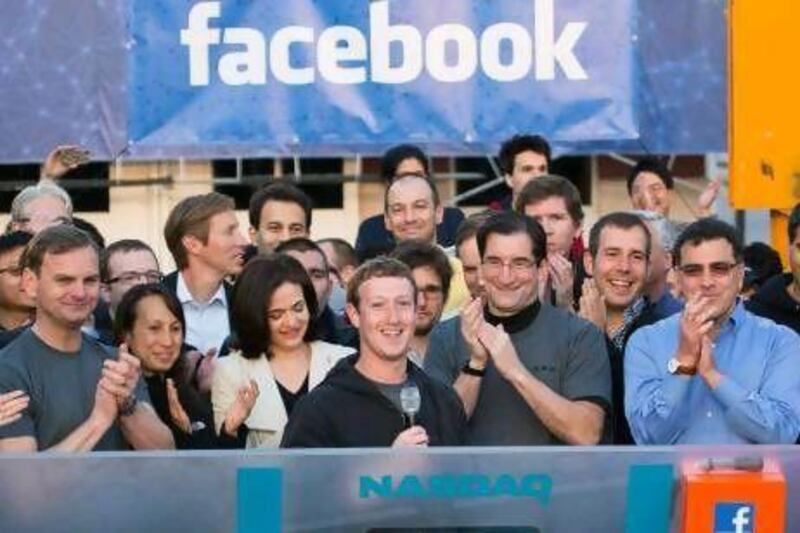Mark Zuckerberg rang the Nasdaq's opening bell last Friday, and at a stroke became one of the richest men alive. The story, thanks in part to the Hollywood film The Social Network, is well known: in just eight years, Zuckerberg helped Facebook grow from a Harvard dorm-room project to a corporate behemoth worth more than US$100 billion (Dh367bn). Less well known, however, has been Zuckerberg's take on his own success. The low-key 28-year-old, known to colleagues as Zuck, rarely gives interviews, and until now has had no obligation to explain his methods.
Thanks to this year's IPO, though, we now have a fascinating insight into Zuckerberg's mind. What's more, that insight has revealed a personal philosophy that Zuckerberg says is the key to Facebook's race to the top. He calls this philosophy "The Hacker Way", and outlined it in an open letter to potential investors published before shares went on sale.
The Hacker Way has become a huge hit with diverse communities ranging from tech start-up geeks to designers and writers, who see in it a uniquely powerful road map to business or creative success. So what does it involve? And could The Hacker Way really drive you to new professional or artistic heights?
In his letter to investors, Zuckerberg outlines the "unique culture and management approach" that, he says, is at the heart of Facebook's dominance. The Hacker Way is distilled to five points. First is Focus on Impact: take time to work out what the biggest problems are, says Zuckerberg, and focus on those. Second, Move Fast and Break Things: if you're not breaking things, you're not moving fast enough. Third, Be Bold: you can't afford not to take risks, and being wrong sometimes is part of the journey. Fourth, Be Open: everyone in your organisation needs access to as much information as possible. Fifth, Build Social Value: whatever you're doing, ask yourself, how does this build value for the real world?
Also central to The Hacker Way is another instruction: Done is Better than Perfect. Zuckerberg explains that this motto is plastered over the walls at the Facebook headquarters, "to remind us to always keep shipping". Indeed, the Done is Better that Perfect posters that adorn the Facebook office walls, created by the Facebook designer Ben Barry, have now been made available to the public and become an instant design classic. "Following through and finishing things is one of the most important things you can learn," says Barry.
So, can you use the The Hacker Way to drive you towards greater success? Some commentators were surprised at Zuckerberg's use of the word "hacker", given the association it now has with stealing information. But Zuckerberg's use of the word references an older tradition of hacking, which goes back to the origins of information technology culture in California in the 1960s. Hackers, says Zuckerberg, "believe something can always be better, that nothing is ever complete". That sounds like a stringent code to live by; but it can also be liberating.
Want to write that novel, or design that new logo for a client? Just start and throw out a quick and dirty first draft: done is better than perfect. There's time to improve it later. Building a start-up business online? Don't wait until you've got everything figured out: move fast and get a first iteration online; you can reiterate as you go. Business stuck at a plateau? Kill your top-down culture and democratise by handing more information and power to your staff. Working hard but not getting results? You could be working on the wrong problems: refocus on impact. The applications are endless.
Now that Zuckerberg has shareholders to answer to, some analysts say he'll have to curb his hacker spirit. Luckily, that's not a problem most of us will ever face. So embrace The Hacker Way, and ask yourself - in the words of another poster often found on the walls of the Facebook headquarters - "What would you do if you weren't afraid?"





